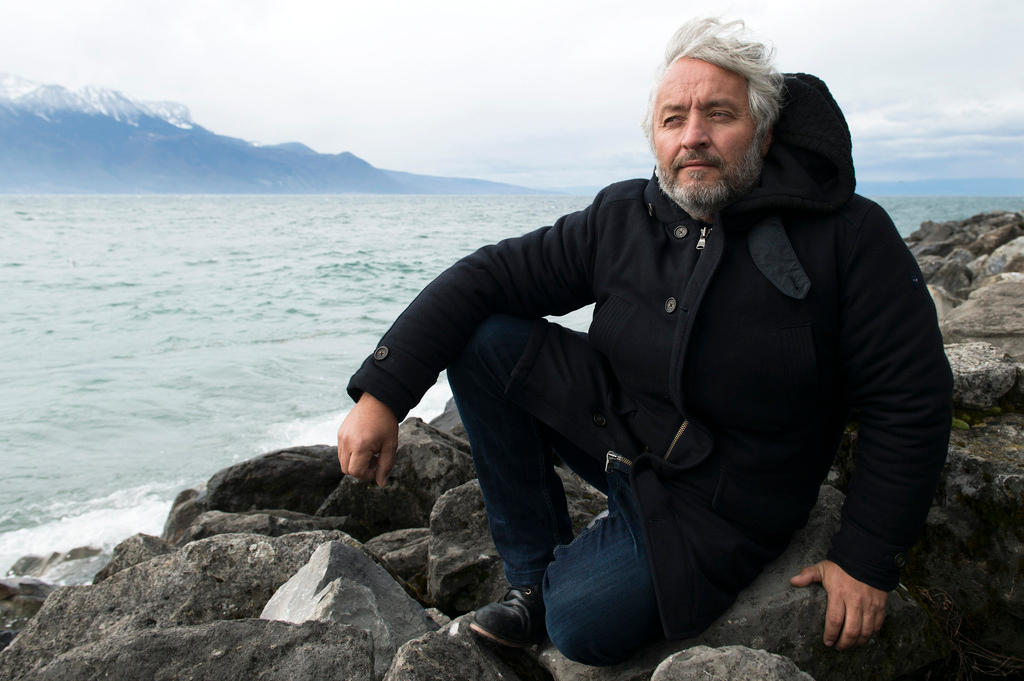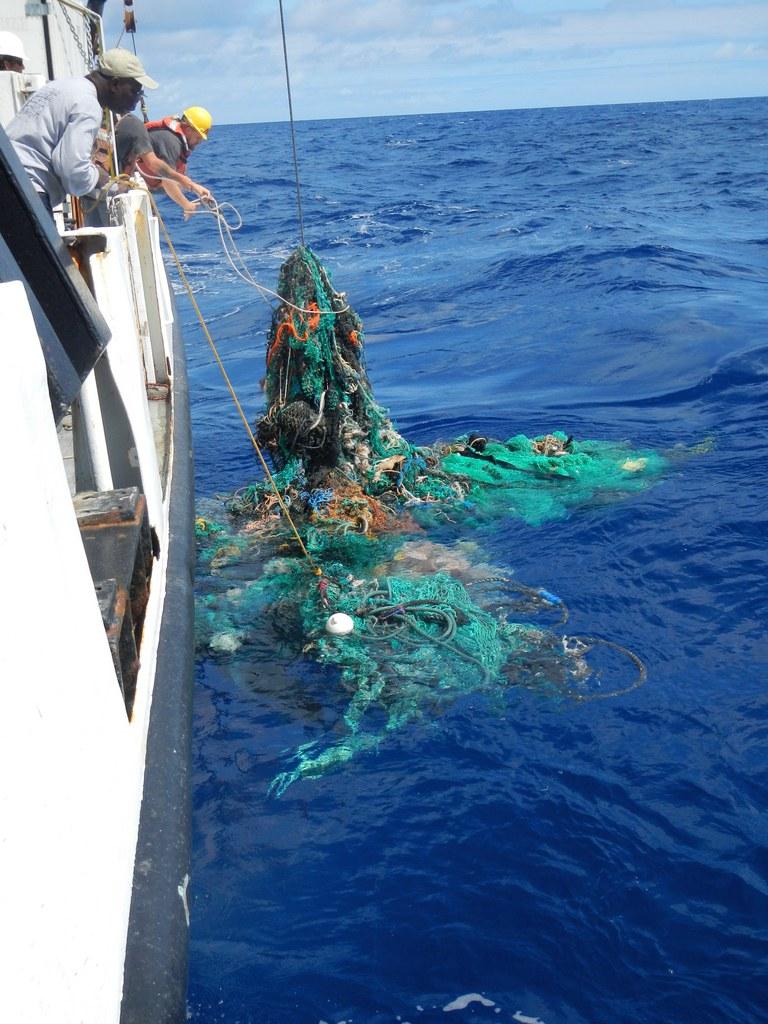
How to clear the ocean of plastic? With a giant sailing boat

A giant solar-powered catamaran to clean the ocean of plastic is the brainchild of French-Swiss navigator Yvan Bourgnon. The boat, named Manta, is to be unveiled for the first time in Geneva this week.
Every year almost 9 million tonnes of plastic waste is thrown into the sea. In the North Pacific alone, a giant field of waste – sometimes nicknamed the seventh continent – is now thought to spread over more than 1.6 million square kilometres.
Swiss inventors in Geneva
The 46th edition of the International Exhibition of InventionsExternal link in Geneva, which runs from April 11 to 15, will display more than 1,000 inventions, conceived by 800 exhibitors from 40 countries.
As well as a model of Bourgnon’s sea-cleaner boat, presented in the non-competition category, visitors will be able to discover two inventions of the Federal Institute of Technology in Lausanne (EPFL): ROVéo, a terrestrial robot agile across all terrains, and Dronistics, a system for delivering small packages by drone.
The renowned French-Swiss ocean navigator Bourgnon has conceived his giant boat that can collect 600m3 of waste as a response to what he calls an ecological, economic and health disaster, and the urgent need to preserve the world’s oceans.
The solar-powered vessel is a veritable floating processing plant. It can sort and compact large plastic waste before bringing it back to shore for recycling.
Launch in 2022
“When I was young and sailed round the world with my family, I didn’t see any plastic in the sea,” Bourgnon told Swiss public broadcaster RTS. “Thirty years later, I had trouble navigating through plastic waste in the Indian Ocean.
“We should have sounded the alarm 30 years ago,” he said. He expects to launch his first catamaran – the Manta – in 2022. “We hope there will then be 100 more boats following, to start cleaning up part of this problem.”
Each boat is estimated to cost €30 million (CHF35.5 million), and Manta is being financed by private donations and patrons. However, says Bourgnon, states, regions, and populations should also reach into their wallets to finance more.

Floating barriers
Bourgnon’s initiative is by no means the only one to have been launched in recent years to tackle the fields of plastic debris polluting the oceans. Much press attention was garnered by the systems of floating barriers, developed by The Ocean Cleanup foundation, which aimed to gather up plastic bags, bottles, packaging, and abandoned fishing nets.
The founder of this initiative, Boyan Slat, has become something of an environmental protection star. And despite his initial mitigated attempts in the North Sea, the Dutchman has not given up on his ambition to rid the North Pacific of its giant layer of plastic.
Other, smaller, cleaning engines are also being tried out. For example, Sea-Vax, a type of sea vacuum invented in Britain and operating from solar energy; or indeed Protei sail drones, conceived to fight against oil slicks but also capable of detecting and fishing out floating debris.
Dispose with disposables
According to the Swiss Race for Water foundation, however, which completed in 2016 a round-the-world research voyage, it’s not realistic to think about any large-scale cleanups. A large part of the waste is found underwater, they say, often in the deepest depths, where it is very difficult and expensive to access.

In addition, there currently exists no miracle solution for gathering microplastics – those infinitely small plastic elements that are harmful for health and are ingested by fish before entering the food chain.
Indeed, to bring to an end the exponential growth of these plastic fields, environmental activists see only one sustainable solution: radically change our way of life and consumption habits and move away from the emphasis on disposable products.

In compliance with the JTI standards
More: SWI swissinfo.ch certified by the Journalism Trust Initiative


























You can find an overview of ongoing debates with our journalists here . Please join us!
If you want to start a conversation about a topic raised in this article or want to report factual errors, email us at english@swissinfo.ch.